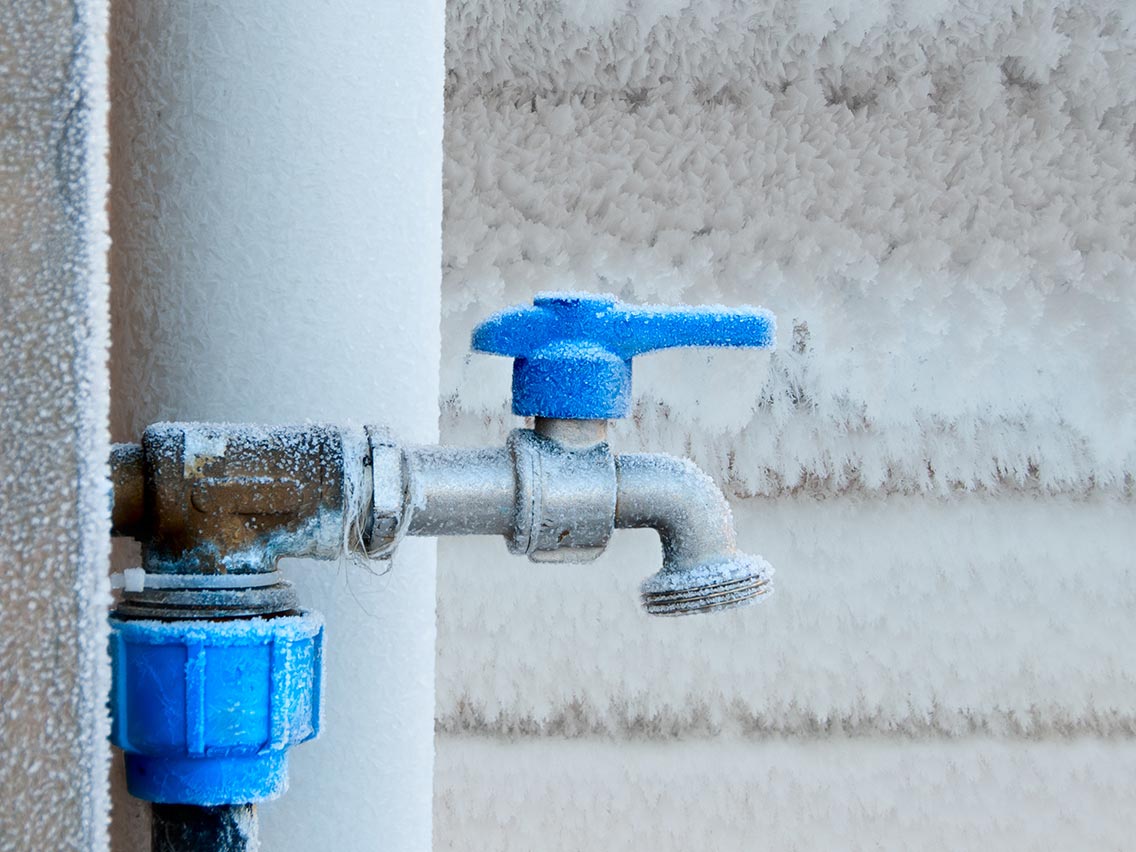- Insurance resources
- Home Insurance Resources
- How to prevent and fix frozen pipes
How to prevent and fix frozen pipes
Prevention is your best defense.

Preventing frozen pipes
- Insulate pipes, especially those close to outside walls, attics or crawl spaces where the chance of freezing is greatest.
- Seal air leaks surrounding or near pipes.
- Keep garage doors closed if there are water supply lines in the garage.
- Disconnect all outdoor hoses and turn off water to exterior faucets and sprinkler systems.
- Open kitchen and bathroom cabinet doors to allow warmer air to circulate around the plumbing.
- Keep heat at 55 degrees F or higher even when you are out of town.
- During a cold spell turn on both hot and cold faucets near outside walls to allow a small trickle of water to run during the night.
- If you need to be away from home, leave the heat on and drain your water system before you go.
- Identify the locations of shutoff valves so that you are prepared to stop the flow of water as soon as possible when a pipe bursts.
What to do if pipes freeze
- Open all faucets.
- Remove insulation and wrap pipes in rags.
- If all else fails, call your plumber.
What to do if pipes burst
- Shut off the water immediately to prevent additional damage.
- Take proper precautions to avoid an electrical shock from being in or near standing water.
- Take an inventory of any damaged property or possessions.
- Contact a vendor specializing in emergency water mitigation services that can properly dry out the damaged area.
Related content
Begin your free online quote
Please note: Information presented on this page is intended to be general information about insurance and is not specific to Liberty Mutual policies. Policies and coverages vary by state and insurer. Contact your insurance company to understand specifics regarding your policy and coverages.